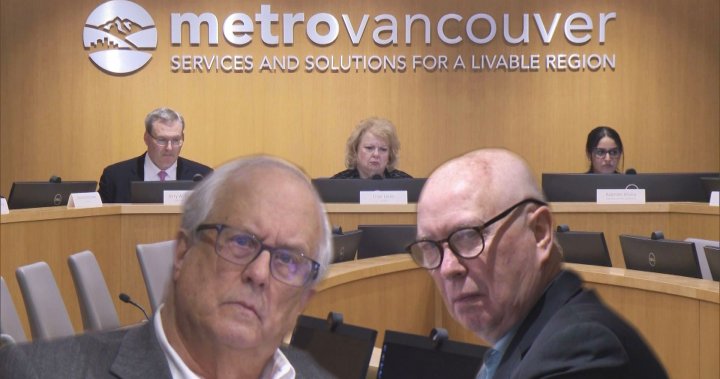As the steady rain fell over Port Coquitlam last Tuesday evening, local resident Jennifer MacKenzie joined two dozen others at a community meeting, their collective frustration palpable despite the modest turnout.
“I’m watching my property taxes climb every year while these board members collect thousands for attending a few meetings,” MacKenzie told me, clutching a printout of Metro Vancouver director compensation figures. “Something’s got to give.“
That sentiment appears to be spreading across the region as calls intensify for the provincial government to establish limits on what Metro Vancouver board members can earn. The regional district, which oversees everything from drinking water to waste management for 21 municipalities, currently allows its directors to collect multiple payments for attending various committee meetings – sometimes on the same day.
Recent financial disclosures show some directors receiving more than $120,000 annually, triggering questions about appropriate compensation for what many consider part-time governance roles that supplement their primary municipal salaries.
Brad West, Port Coquitlam’s mayor who has emerged as one of the most vocal critics of the current system, didn’t mince words when we spoke at city hall yesterday. “We’re talking about a system that allows some directors to effectively double-dip by attending multiple meetings back-to-back and collecting separate payments for each one,” West explained. “It’s simply not defensible to the average taxpayer who’s struggling with affordability.”
West has formally requested that Municipal Affairs Minister Anne Kang implement reforms that would set reasonable limits on these payments, pointing to a growing public backlash against what he characterizes as “excessive compensation.”
The numbers tell a compelling story. According to Metro Vancouver’s financial statements, director remuneration has increased by approximately 28% since 2019, outpacing inflation and far exceeding wage growth for most British Columbians during the same period.
George Harvie, Delta’s mayor who chairs the Metro Vancouver board, collected $120,617 in 2023 for his regional duties – separate from his mayoral salary. Similarly, Sav Dhaliwal, a Burnaby councillor who previously chaired the board, received $111,852 for his Metro Vancouver work.
“This isn’t about whether elected officials deserve fair compensation,” says Alex Boston, executive director of Renewable Cities at Simon Fraser University. “It’s about creating a system that incentivizes effective governance rather than meeting attendance. The current structure potentially rewards quantity over quality of participation.”
Boston points to models in other jurisdictions where regional representatives receive a fixed stipend regardless of meeting frequency – a system he suggests promotes focused decision-making rather than prolonged deliberations.
When reached for comment, Minister Kang’s office acknowledged receiving West’s request but stopped short of committing to specific reforms. “We are reviewing various approaches to regional district governance, including compensation structures,” a ministry spokesperson said. “Any potential changes would involve consultation with municipalities and consideration of regional differences across the province.”
The tension around Metro Vancouver compensation reflects a broader struggle in local governance – balancing fair remuneration for public service with fiscal responsibility to taxpayers. Metro Vancouver defends its practices by emphasizing the significant time commitment required of directors and the complexity of regional issues they manage.
“We oversee critical infrastructure worth billions and make decisions affecting 2.7 million residents,” Metro Vancouver Board Chair Harvie noted in a statement responding to criticism. “Director compensation reflects the substantial responsibilities and expertise required for effective regional governance.”
Yet for residents like Emily Chen, whom I met at a Vancouver housing forum last month, such explanations ring hollow. “They’re already paid as mayors and councillors,” Chen pointed out. “Metro Vancouver duties come with the job they campaigned for. When my family is cutting back on groceries because of inflation, seeing these payment structures feels disconnected from reality.”
Public opinion appears to support reform. An informal poll conducted by advocacy group Fair Metro showed 78% of respondents favor implementing a cap on director remuneration, with 65% supporting a model where officials receive a single payment regardless of how many meetings they attend.
Nathan Pachal, a Langley City councillor who sits on the Metro Vancouver board but has been critical of its compensation structure, believes the system needs modernization. “Technology has changed how we meet and conduct business,” Pachal told me. “We need a compensation model that reflects today’s realities, not practices established decades ago.”
The BC Taxpayers Federation has also weighed in, calling the current system “ripe for abuse” and suggesting that some directors may be incentivized to schedule unnecessary meetings or extend deliberations to increase their compensation.
As this debate unfolds, municipalities across the region find themselves in an uncomfortable position – dependent on Metro Vancouver for essential services while questioning its financial governance. The regional district’s 2024 budget exceeds $1.1 billion, with property taxes and utility fees as primary funding sources.
For Mayor West, the path forward is clear. “The province needs to step in with reasonable guidelines that ensure fair compensation while protecting taxpayers,” he emphasized. “This isn’t about devaluing public service – it’s about maintaining public trust.“
As I left Port Coquitlam’s community meeting, Jennifer MacKenzie’s parting words stuck with me: “We’re not asking for volunteer politicians. We just want a system that passes the common sense test.”
With affordability concerns dominating public discourse across British Columbia, that common sense test may prove to be the most important metric of all.






